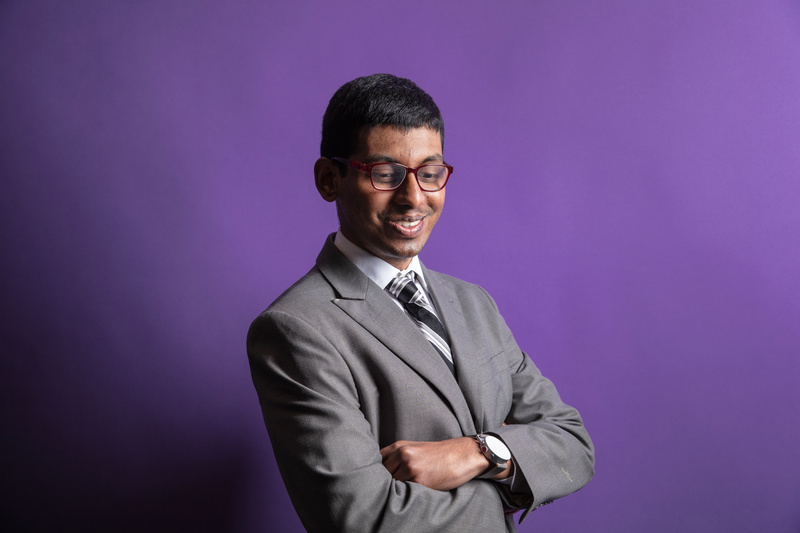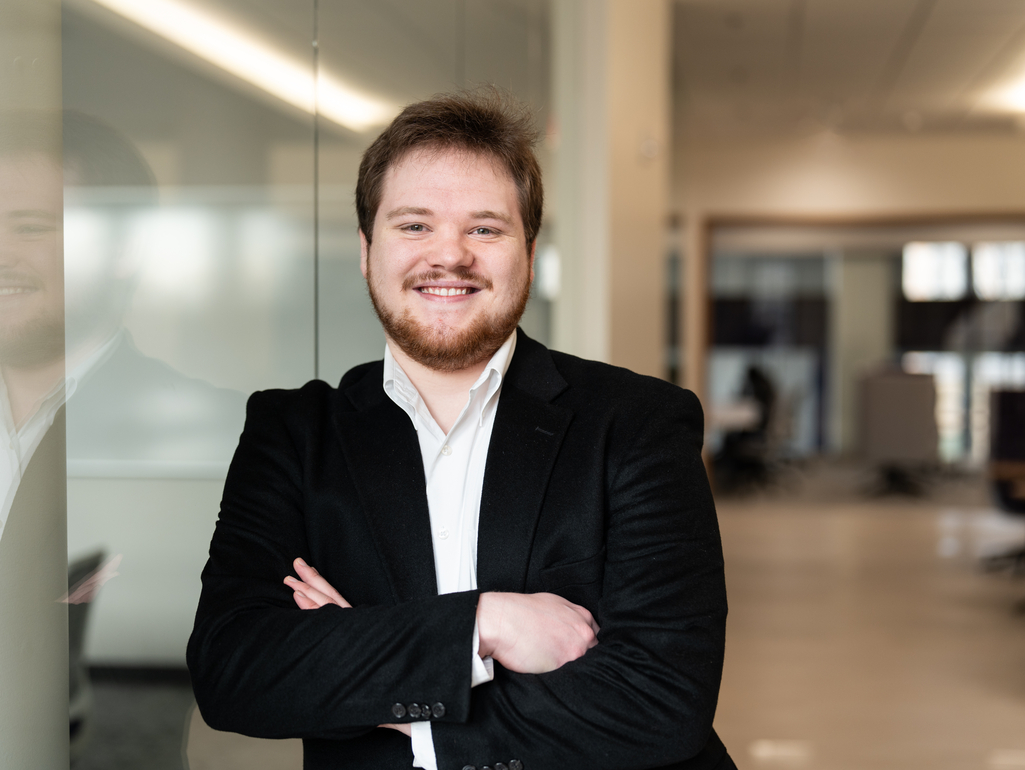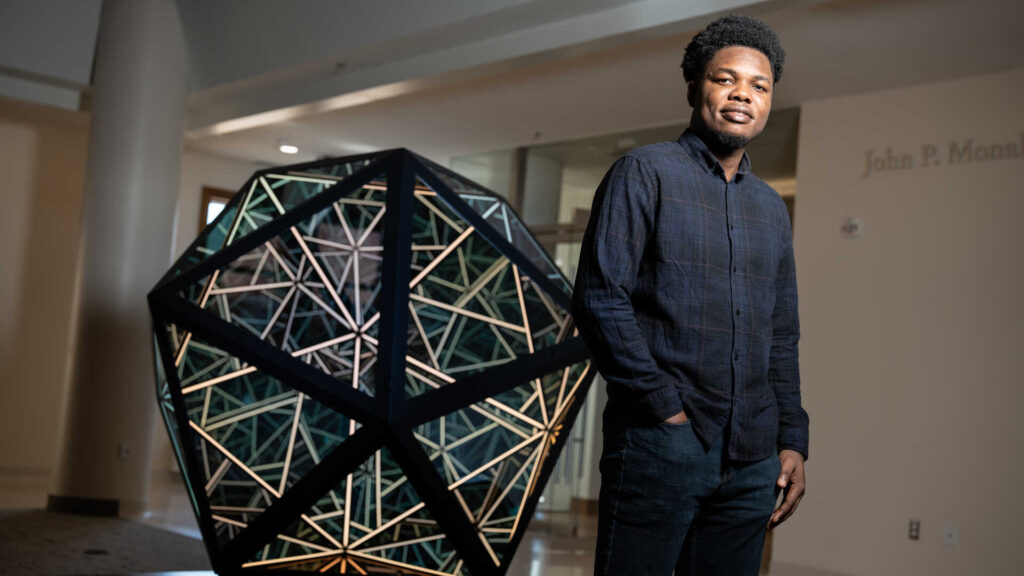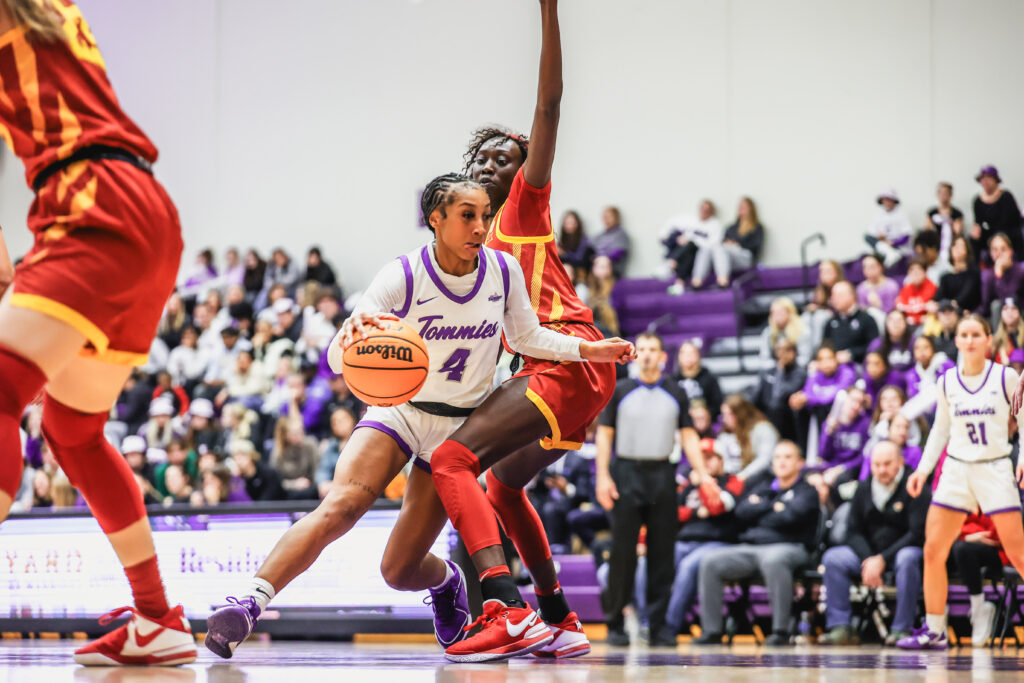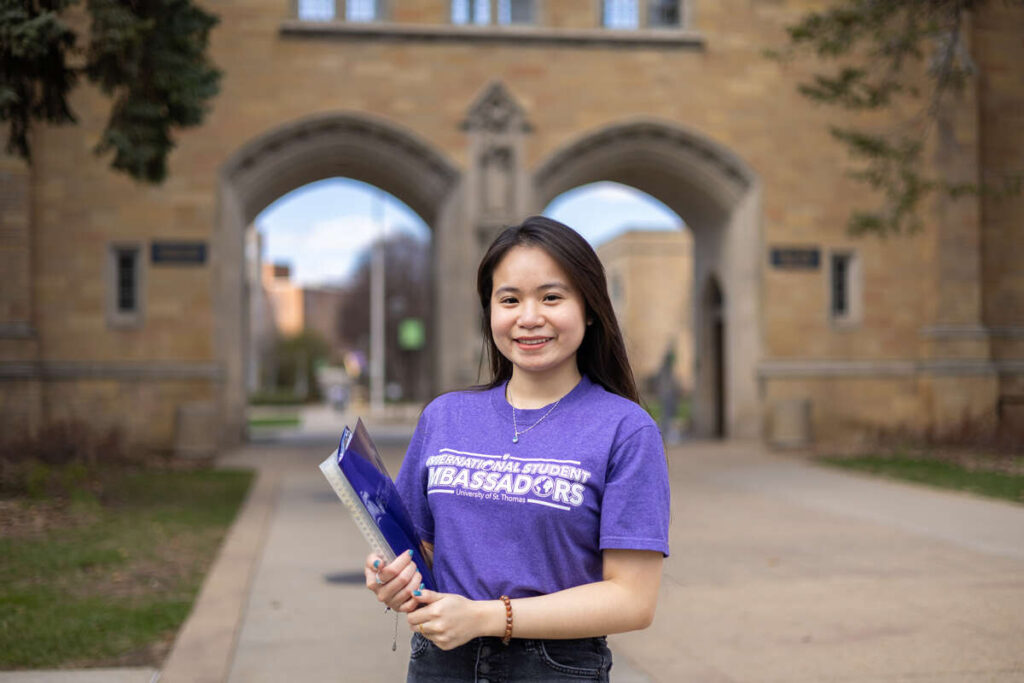Lisan Hasnain ’21 AA, '23 came into Dougherty Family College thinking it was going to be a typical two-year community college. But he “underestimated it a little bit.”
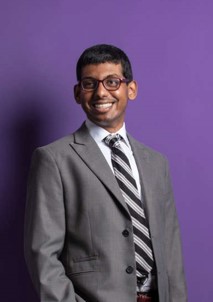 Mark Brown / University of St. Thomas
Mark Brown / University of St. ThomasAfter a few leadership roles at the associate degree college and writing “one of the hardest essays” he’s written, he was one of several recipients of the DFC Excellence Scholarship, a scholarship given to around 10 DFC students each year to fully fund their tuition to continue earning their four-year degrees at St. Thomas.
Those experiences included participating in DFC’s student advisory board, working with Innovation and Technology Services to do accessibility testing for St. Thomas’ digital platforms and joining BraillEazy, a student-founded company that is designing a module that can attach to a smartphone to allow a mobile way for the blind to read Braille.
Hasnain, now a junior, is working toward a bachelor’s degree in computer science through the College of Arts and Sciences on the St. Paul campus. He wants a career in user experience design, focusing on digital accessibility because, he said, “You have to make sure that it can be used by folks with a variety of disabilities."
The Newsroom caught up with him for a Humans of St. Thomas feature.
Why did you choose Dougherty Family College?
Well, actually, it’s an interesting story. One day, in the spring of my senior year of high school, one of my friends at the mosque [in Brooklyn Park] was asking me about my college application process, and he said, “Have you heard of DFC?” And I said, “What’s DFC?” and he goes, “This is Dougherty Family College, it’s part of this new program that was started in 2017, and they have this scholarship program in connection to the greater University of St. Thomas.”
So, I did some research on it and ended up applying and they had this interview process. I’m very happy to know that the people who interviewed me were impressed with me and gave me the letter to join.
What was a highlight for you at DFC?
My experience was unique and very different. I wanted that scholarship, so I tried to come in and tried to make an impression on my professors. I participated in all the events, even if I didn’t feel like it.
They encouraged me because, originally, I just wanted to graduate with just a computer science degree and go into a generic role in the software development industry, but I got a wonderful opportunity to do an internship as part of the FCS Professional Development program at U.S. Bank, so I did that for the duration of my freshman and sophomore year, that was roughly 15 months. Then after that I got another role more into technology and operations services and I did that for two and a half months this past summer.
I started taking leadership roles in DFC. My sophomore year, I participated in the student advisory board to represent all the students of DFC and their concerns to the deans of the college. It was humbling to represent my classmates.
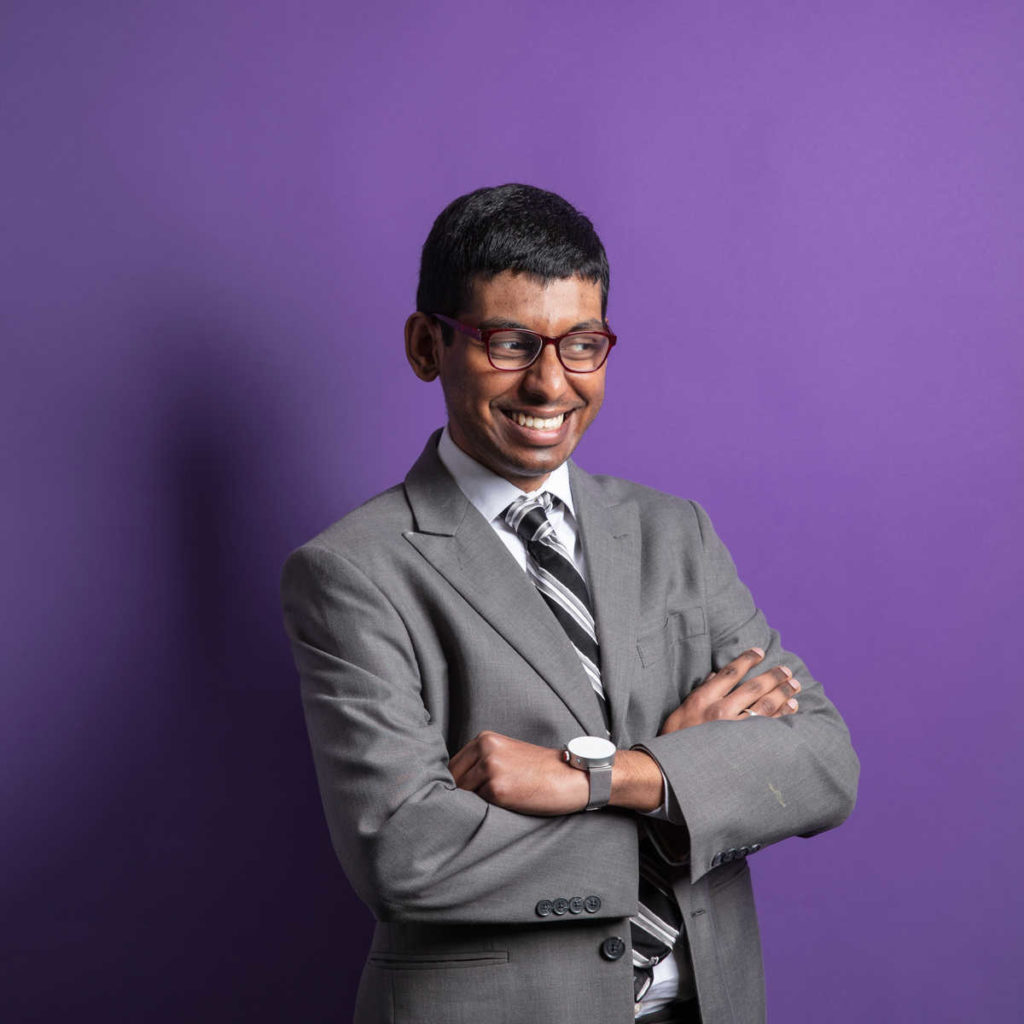
Why is digital accessibility for people with disabilities important to you?
I was born in 2000 in Hyderabad, India. Two months later, my parents realized that I couldn’t focus my eyes toward them. I’d look toward them, but I couldn’t focus my movements, so they were concerned. The doctor diagnosed me with Leber congenital amaurosis, an eye condition that affects the retina and left me with some residual vision but not enough to be competent enough to read print. The doctor provided some pretty vague suggestions apart from the diagnosis, such as the need to grow up in a safe environment.
My parents let me explore different avenues and different things. They’re very supportive of me being independent and having independent skills so I can do things on my own. My mom wanted a place where I could grow up, expand myself and be as independent as possible but still have the values that we have and the religious values that we have. It just so happened at that time, my dad was applying for jobs outside of India. He chose the U.S. My dad came in 2002 and my mom and I joined him in 2003.
How did you become involved with accessibility testing at St. Thomas?
During the spring of my freshman year, I was informed in my First-Year Experience class that we had an application that was being developed, a University of St. Thomas app. When I went in and downloaded it and tested it out, the experience was very poor. So, I thought, let me see what happens if I reach back out to the dean who recommended me to this to see what he’ll say if I just told him that there were some accessibility and usability issues.
He sent a note to [Innovation and Technology Services] who was working on the app, and they reached out to me directly to volunteer my time and offer to let me beta test the newer versions of the app as they were releasing it. Three weeks later, they decided to hire me on part time to do accessibility testing – not just for the app, which has seen a lot of improvements over the past year and a half, but to other digital platforms that St. Thomas uses.
How did you connect with BraillEazy?
In my First-Year Experience class, the current president of BraillEazy, Abenezer Ayana ‘21, gave a talk. I decided to approach Abenezer after the presentation because he passed around this Braille watch that could read your phone’s notifications. (He used that as an inspiration for BrailleEazy. I said, “Hey, this is really cool, I want to join you guys if you’re building anything.” He called me later and he said, “We’re trying to work on a smartphone case designed to teach Braille to the blind.”
He introduced me to the rest of the team of folks that he’s gathered; there’s six of us. I’m the chief accessibility officer. I want to make sure that what we’re designing is feasible and it can be used by people. We participated in the Fowler Business Concept Challenge, and we were in the top five globally.
I feel that I just was in the right place at the right time, and I was very lucky to have these opportunities.
